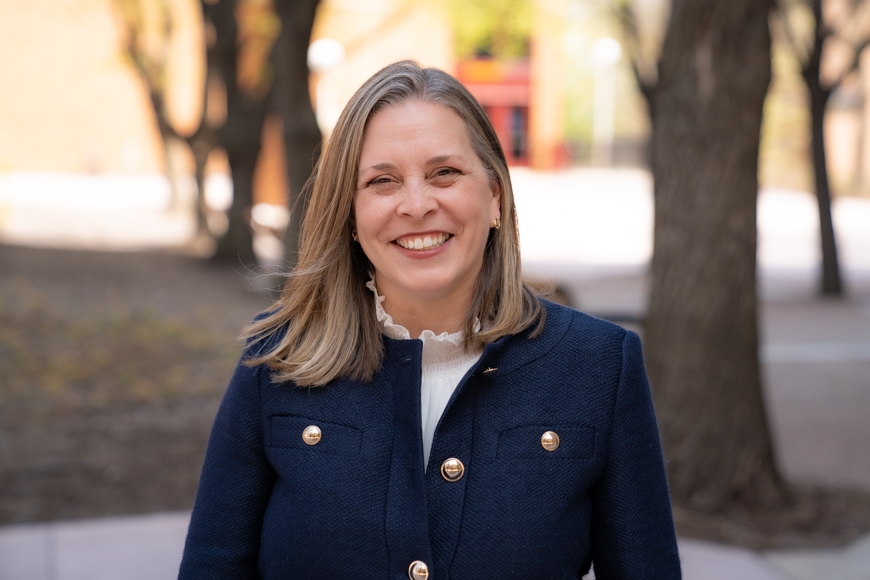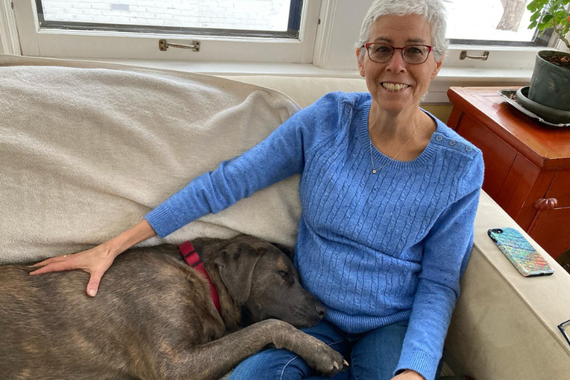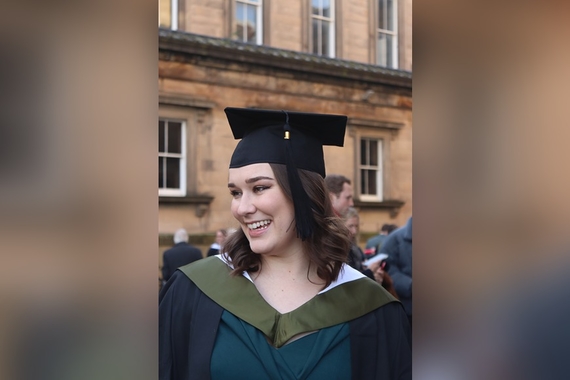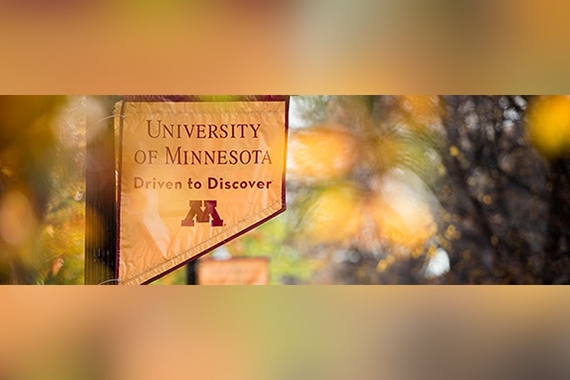Welcome Carrie Walling, New Director of the Human Rights Program
Carrie Walling, a human rights expert with years of experience as both an academic and a practitioner, is the new executive director of the Human Rights Program. She will begin in late July.
Walling is the founder and director of the Human Rights Lab at Albion College in Michigan. She is also an alumna of UMN and the Human Rights Program. Walling earned her master's and doctoral degrees in political science from the Twin Cities campus and minored in human rights during the latter degree.
“I'm really excited to meet and talk to students, faculty, and staff who are part of this community,” Walling said. “I'm looking forward to hearing from people about their ideas. What would they like to see the Human Rights Program do? I have an open door and I'm eager to help students pursue their passions, connect them to resources, get to know them, and be a partner in pursuing their goals.”
Past Work at Albion
Walling founded Albion’s Human Rights Lab in 2021. The program emphasizes community-engaged learning, connecting undergraduate students to projects, and research with local advocacy groups.
Before pioneering the Human Rights Lab, Walling served as a political science professor and director of Albion’s multidisciplinary, campus-wide honors program, the Prentiss M. Brown Honors Program.
Additionally, for the past 18 months, Walling has acted as the faculty director of the college’s Gerald R. Ford Institute for Leadership in Public Policy and Service, which runs the Human Rights Lab as one of its many programs. The Ford Institute prepares students for engaged citizenship, as well as careers in public policy and community leadership.
With this emphasis on leadership, Walling also created opportunities for undergraduates to take the reins on human rights initiatives. Students have collaborated to create a human rights advocacy toolkit, authored original content for the program’s blog, and hosted an international human rights conference that gathered academics from 18 colleges and nine countries.
“The work that she’s been able to do, the things that she’s been able to create, most recently at Albion, have been very entrepreneurial and forward-thinking,” said Rochelle Hammer, the interim director and long-time associate director of the UMN Human Rights Program. “Those partnerships and those opportunities to get outside of campus—whether it’s advocacy initiatives or research opportunities—is something that the [Human Rights Program] has always valued. I think she’ll continue to grow those and provide new opportunities.”
Beginnings
Before her 12 years at Albion College, Walling studied human rights at UMN while pursuing her doctoral degree in political science. She wrote her dissertation on the protection of human rights in times of war through interventions by the UN Security Council, a topic that sparked her interest in pursuing a career in academia.
Walling began her career in the nonprofit world as a program coordinator for Women for Women International, which provides training and resources to women survivors of war around the world. This work inspired her to return to school and begin her research.
“While I loved the direct-service work with women survivors of war, I was also really interested in the questions about how and why we had gotten to that place in the first place and what could be done to prevent and respond to mass atrocity crimes,” Walling said.
This research is the focus of her first book, All Necessary Measures: The United Nations and Humanitarian Intervention. In 2021, she published her second book, Human Rights and Justice for All: Demanding Dignity in the United States and Around the World.
Walling said she loves the human rights framework because instead of focusing solely on how people survive, it advocates for fulfilling lives of dignity and self-realization for all.
“Part of why I love working with students on human rights is that we all have the capacity to make a change now, even before we have our degrees,” Walling said. “But I think human rights gives us an empowering framework for doing so in ways that are effective, that can have impact, but also that are ethical, that engage our community partners and our neighbors.”
Building on Strengths
As the Human Rights Program transitions to a new director for the first time in its history, the program’s home department, the Institute for Global Studies (IGS), is preparing for the upcoming academic year. IGS director Evelyn Davidheiser said she is eager to see how the program evolves under Walling’s leadership.
“The Human Rights Program has always been so key to what we’re doing in Global Studies and I know that Carrie is going to continue that, but I’m looking forward to her putting her own stamp on it,” Davidheiser said.
“For me, this is a wonderful opportunity to come back to my intellectual home,” Walling said. “I studied human rights here. I had been a student of Barb Frey and Kathryn Sikkink and so it's really exciting to be able to follow in the shoes of my mentors, to be able to build on the program’s strengths, help to secure the legacy and grow that program into the future.
“So in many ways, it feels like coming home.”



